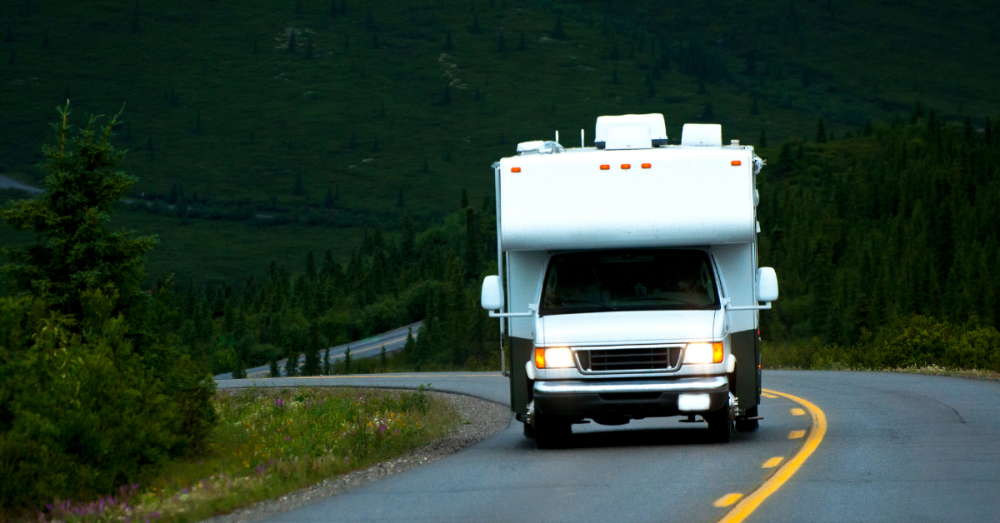RV Insurance vs. Car Insurance: How Do They Differ?

If you have an automobile and a recreational vehicle, you might be wondering if your car insurance policy automatically covers your RV. The short answer is no – you’ll need a separate policy for a recreational vehicle.
There is quite a bit of overlap between an insurance policy for an RV and a family car, but there are notable differences. In this article, we’ll highlight those differences while giving you insight into how the two policies may overlap.
Do I Need RV Insurance?
Forty-eight states require that any RV driven on the road must be insured, but it’s usually up to you how much insurance coverage you purchase. An exception to this rule is when you are financing or renting an RV. If you are financing the vehicle, you’ll inevitably be required to purchase full coverage insurance.
In some cases, you might not need insurance. This is true when the RV isn’t being driven independently – instead, it’s being towed. A towable RV (also referred to as a trailer) will be attached to your car insurance policy.
How RV Insurance Coverage Differs from Auto Insurance Coverage
Both RV and auto insurance policies include similar coverage categories, including liability, comprehensive, and uninsured motorist. It can be helpful to understand the differences between coverage by first examining how these policies are similar.
Liability
Almost all states require some form of insurance for a vehicle, whether it’s a car, motorcycle, or RV. As the name suggests, liability is a type of coverage is designed to protect you when you’re the one at fault for an accident. There are two categories of coverage, and they’re the same, regardless of the vehicle. The categories include bodily injury and property damage to the other party’s vehicle or property.
Collision
Also referred to as comprehensive coverage, collision coverage insures against damage to your RV. It may also cover other tragedies like theft and vandalism.
Just like auto insurance, you can exert some control over your monthly premiums by specifying how much coverage you’d like and what your deductible is. The higher your deductible, the lower the cost of your policy, and vice versa.
Uninsured Motorist
There’s nothing worse than being involved in an accident that wasn’t your fault only to find out that the other driver either has no insurance or their insurance coverage isn’t enough to compensate you for damages.
When this happens, your uninsured motorist policy can kick in to cover the damages. Uninsured motorist coverage is available for both recreational vehicles and passenger automobiles.
Additional Coverage Available for RVs
In addition to the basic forms of coverage listed above, RV owners can also get additional insurance to cover their personal property inside the RV, as well as insurance that functions almost like homeowner’s insurance.
Optional coverage includes:
- Personal property coverage: If your car gets broken into, your car insurance doesn’t cover the theft of personal items like laptops, purses, clothing, etc. Instead, that falls under the umbrella of your homeowner or renter insurance policy.
RV insurance, on the other hand, has the option to add personal property coverage that extends to items both inside of and attached to the RV.
- Full-time RV insurance: If your RV also doubles as a home or permanent residence, you can purchase insurance that gives you coverage similar to that of a homeowner’s policy. This includes personal liability and medical coverage for visitors and coverage to common areas where you’ve chosen to park your RV.
- Roadside assistance: Both recreational vehicles and automobiles can have policies that include roadside assistance. Roadside assistance can be a lifesaver in any situation, but when you have an RV, being able to get help when you’re stranded is imperative.
The Cost of RV Insurance vs. Car Insurance
The cost of RV insurance tends to be less than car insurance. This might seem non-intuitive, but it makes sense if you look at the situation.
On the one hand, RVs are more expensive, and covering damages may be more costly than an automobile accident. However, insurance companies also weigh the risk of an accident, and they tend to give RV owners a break because they are on the road less frequently than daily commuters.
Find Out How Much Your RV Insurance Policy Will Cost
If you have an RV and need insurance coverage, contact the Encore Insurance team at 248-466-0200 for a free quote. We’ll create a custom-tailored quote that fits your coverage needs and stays within your budget.
